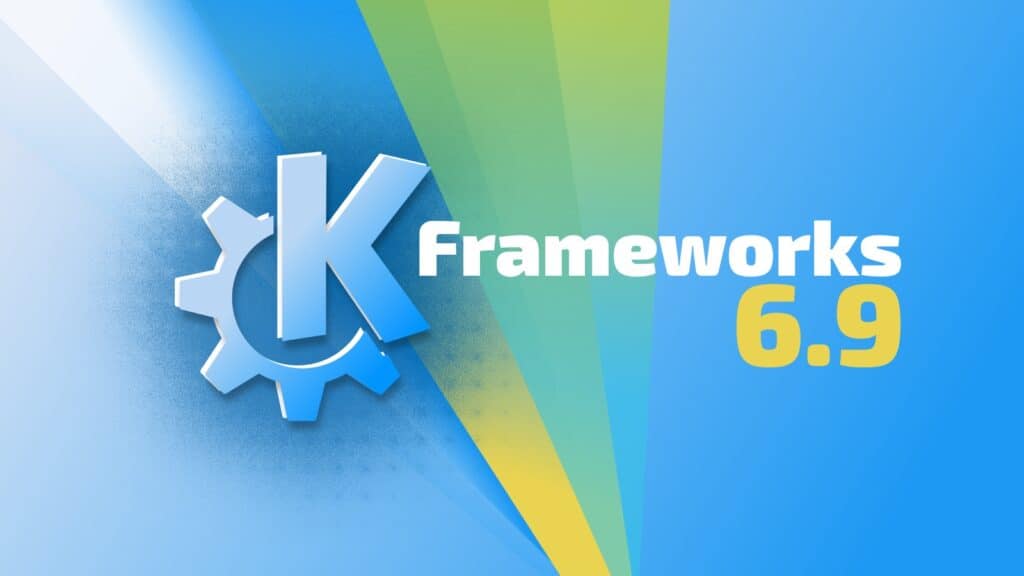More than a month after the previous 6.8 release, KDE announced the launch of Frameworks 6.9, expanding its collection of addon libraries to Qt and enhancing functionality available to developers across various platforms.
This release refines numerous framework components, offering subtle polishes and noteworthy improvements across various libraries.
For instance, developers will find that many modules have now been adjusted to compile cleanly without deprecated methods, improving long-term maintainability.
In some libraries, new Python bindings make integrating KDE functionality with other technologies easier, while multiple Haiku OS-related fixes broaden the frameworks’ portability.
- Baloo: Improved unit tests and indexing options help ensure more reliable search and metadata handling.
- Breeze Icons: Frameworks 6.9 restores directory symlinks for the dark variant, enhances system update and notification icons, and introduces a variety of new symbolic icons. These tweaks address several long-standing issues, ensuring a more cohesive and visually pleasing iconography.
- Extra CMake Modules (ECM): Developers can look forward to alignment with KI18n, new strategies for handling multilingual catalogs, improved reproducible builds, and a host of minor fixes that streamline the build process.
- KArchive, KAuth, KBookmarks, KCalendarCore: Many libraries have been refined to ensure smoother compilation without reliance on legacy APIs. This ongoing modernization simplifies maintenance and helps future-proof applications built on KDE Frameworks.
- KColorScheme: Improvements in platform detection, especially for Flatpaks, fix previously reported bugs and fine-tune the color experience in various deployment scenarios.
- KConfig: Updates enhance saving window states and preserving UI layout on re-launch, ensuring a more consistent user experience for QtQuick-based applications. Additionally, improved resource handling prevents issues related to maximized windows.
- KIO: Enhancements here include more informative error messages when dealing with FTP restrictions, robust handling of file ownership changes, and better user display options in properties dialogs. Developers should find their file operations more predictable and user-friendly.
- Kirigami: This framework, essential for creating adaptive and elegant user interfaces, has received accessibility enhancements and improved handling of toolbars, placeholders, and label selection. These changes help developers build interfaces that “just feel right” across multiple platforms and form factors.
- KNewStuff: Strengthened transaction handling and streamlined caching systems enable more reliable content fetching. The API refinements aim to make it easier for developers to integrate community-driven content in their apps.
- KNotifications, KGuiAddons, KCoreAddons: Several frameworks now include Python bindings, further facilitating cross-language development. This should be particularly attractive for developers who like to mix and match technologies.
- KTextEditor: Reliability and responsiveness improve with fixes to line numbering, crash prevention, and enhanced search features. Whether you’re working with large documents or switching layouts often, these improvements help maintain a stable and smooth editing experience.
- Syntax Highlighting: This update expands and refines language support. Odin language highlighting, for example, is now more consistent and accurate, while CMake syntax definitions have been kept current with the latest language capabilities.
Beyond code fixes and feature additions, many libraries also include subtle quality-of-life enhancements.
Moreover, several components within KDE Frameworks 6.9 now include dedicated CI jobs to ensure compatibility with musl, the lightweight C standard library favored by Alpine Linux.
For those interested in getting hands-on with KDE Frameworks 6.9, the software is available for download on KDE’s official website. Instructions for compiling from source are provided for those who prefer a more customized installation.
On Linux, the recommended approach is to install binary packages from your distribution’s repositories.
Visit the official release announcement for more detailed information about KDE Frameworks 6.9, including a full list of updates and bug fixes.
